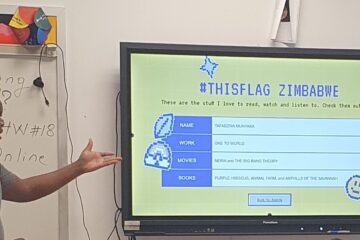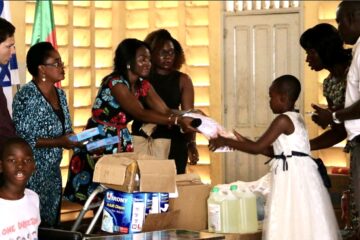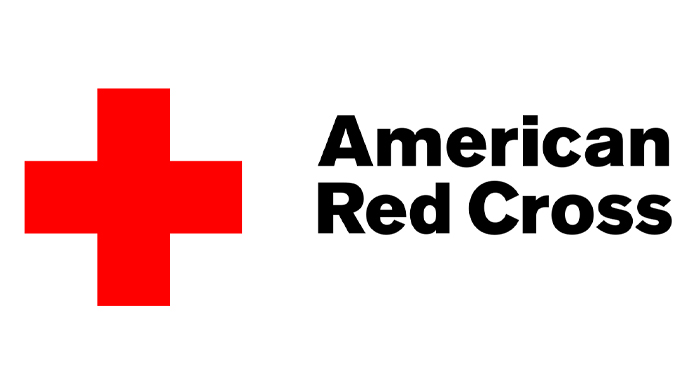
As a way to promote the incredible work our Host Organizations are doing and to spread the word of the substantial impact Atlas Corps Fellows has on their teams. Today, we are sharing a story of American Red Cross (ARC) and their experience with Atlas Corps Fellows Awais (Class 40, Pakistan) and Anil (Class 40, Nepal).
American Red Cross
American Red Cross is a nonprofit organization, comprised of mostly volunteers, that provides humanitarian and crisis support along the areas of: Disaster Relief, International Services, Lifesaving Blood, Military Families, and Training & Certification.
Fellow Supervisors: Bernard Vicary, Yejin Oh, and Leah M. Seese
At Atlas Corps, we have a tradition of stating our “Five Facts” when introducing ourselves to new people. What are your five facts?
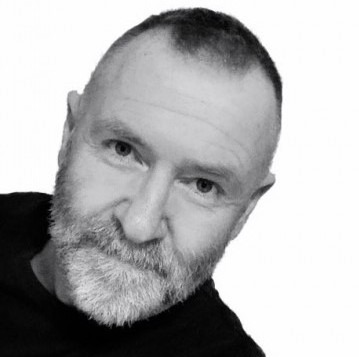 |
Name: Bernard Vicary
Hometown: Melbourne, Australia Role at Organization: Senior Director, Strategy, Data and Learning, Service to Armed Forces and International Service Social Issue/Interest Area: Social Justice, Equity, Measuring Impact, Public Health Fun fact: I am an amateur astronomer, where I ride my motorbike to dark places to see the stars. |
 |
Name: Yejin Oh
Hometown: Seoul, Korea Role at Organization: Response Personnel Manager, International Services Department Social Issue/Interest Area: Social justice, Building up fellow humanitarians Fun fact: I have two cats I foster-failed during the pandemic! |
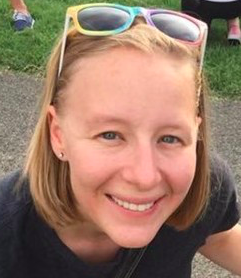 |
Name: Leah M. Seese
Hometown: Baton Rouge, Louisiana Role at Organization: International Response Operations Officer, International Services Department Social Issue/Interest Area: Humanitarian Assistance, Social Justice, Equity Fun fact: I am an avid volleyball player. |
Why did you decide to host an Atlas Corps Fellow?
The American Red Cross has hosted several Atlas Corps Fellows in the past in other departments. This time, we decided to host Fellows from diverse cultural backgrounds and experiences in the Quality, Data, and Learning (QDL) and International Response team to support the knowledge management, learning, and research efforts aligned to the International Service Department (ISD) Strategy 2023.
Why did you choose Awais and Anil as your Atlas Corps Fellow?
We were looking for a dynamic professional who has an excellent record of accomplishments and experience in the area of knowledge management, research, and leading initiatives. We found both Fellows (Awais and Anil) have those qualities in their home countries that were aligned to the work of the American Red Cross. During the interview, we also found them human-centered, sensitive to cultural diversity, and one who enjoys working in a global team of the American Red Cross.
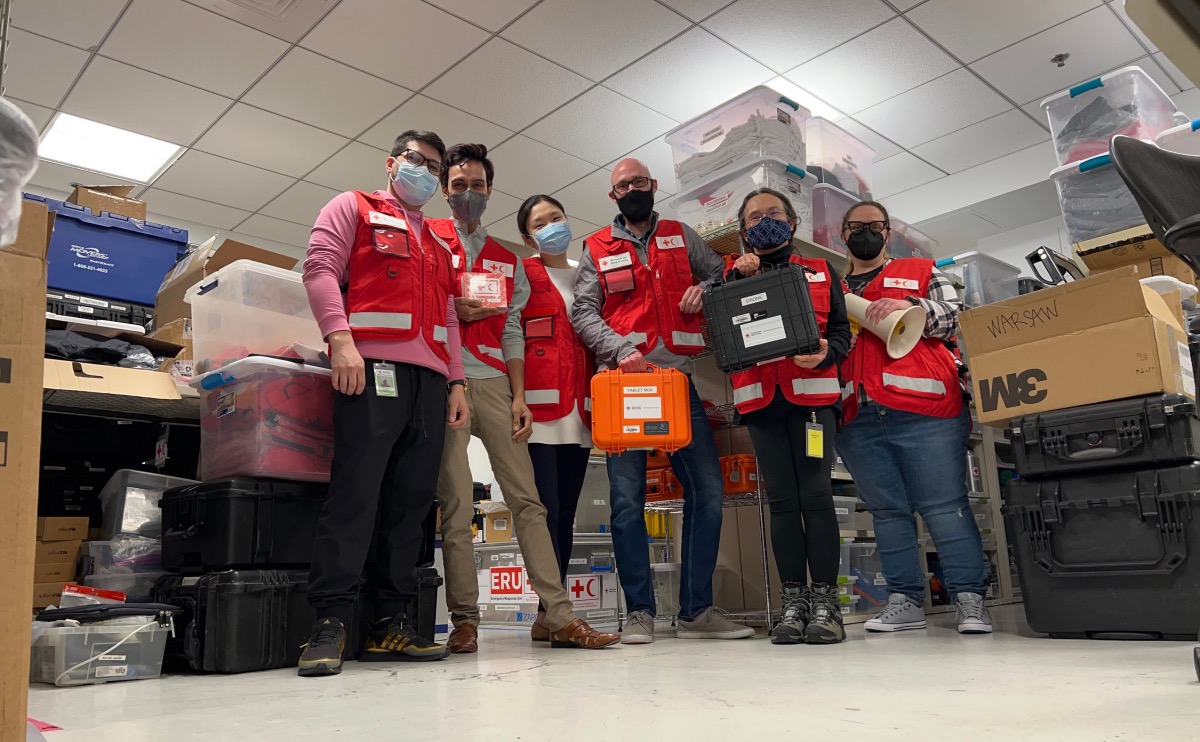
How has Awais and Anil contributed to your team? How has his presence had an impact on your team’s dynamic?
Atlas Corps Fellows have contributed immensely to our efforts of knowledge management and international service strategy (ISD) 2023 and research initiatives and provided additional hands to the team by leading the initiative at the time when we needed it most. The presence of both Fellows has added diverse and cross-culture experience to the team, which is invaluable. Awais has been leading learning the and knowledge management initiatives, as well as managing Uplift learning sessions, curating learning materials, and facilitating with other teams. Anil has been leading ISD Strategy Report writing, and research efforts that the American Red Cross will be pursuing for the next 3-5 years.

How will your Fellow’s contributions and insights impact your organization in the long run?
Uplift learning sessions and Research agenda are the long-term efforts of the American Red Cross and hence contributions from Atlas Corps Fellows have been particularly important as they have led the process from the start. Their contributions will impact the organization for a long time.
What has Awais and Anil taught you? Have you learned anything special about their culture?
From local dialect to local nuances of language and culture to human behaviors of Pakistan and Nepal, we have been getting to know differences of culture piece by piece. One thing which is common across the globe is human capital and the connection between humans to humans at times of need particularly during a disaster and protracted situations. We benefited greatly from Fellows’ respective areas of expertise such as research, writing, knowledge management, communications, and education that we don’t have in the team.
Fellow: Awais (Class 40, Pakistan)
At Atlas Corps, we have a tradition of stating our “Five Facts” when introducing ourselves to new people. What are your five facts?
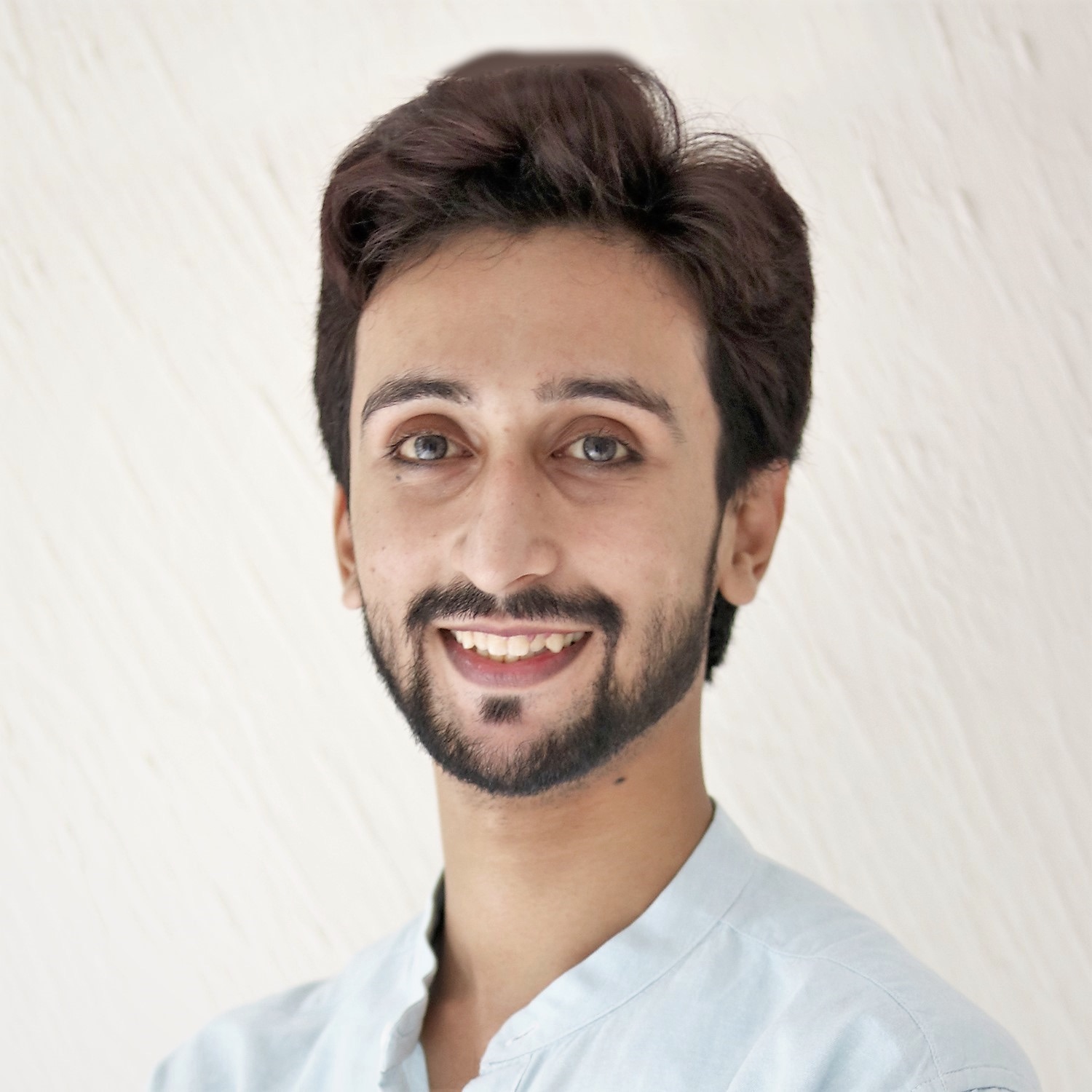 |
Name: Awais Farooq
Hometown: Lahore, Pakistan Role at Organization: International Response Knowledge Management and Learning Fellow Social Issue/Interest Area: Social inclusion, Education, Youth empowerment. Fun fact: I am extremely ticklish, scared to death of cockroaches, and also obsessed with technology 24/7. |
What is your role at your Host Organization?
As the International Response Knowledge Management & Learning Fellow, I am involved in the support, design, and implementation of the various forms of learning experiences for our team at large by supporting and creating effective knowledge management practices and guidelines. I also help in the creation of internal communication and design, which has resulted in better team collaboration and decision-making.
Currently, I am coordinating our peer-to-peer learning initiative called, “Uplift – Learning at American Red Cross,” which is expanding learning into new and exciting formats, such as podcasts, experiential learning, mentorship, and
etc. I have also recently been involved in the supporting of engagement and learning efforts for our roster of team members who are internationally deployed whenever disasters strike.
How is your experience with your Host Organization impacting your perspective?
I have always believed that humans can truly uplift each other through the sharing of our exposures and experiences and I have felt uplifted since the day of my interview. I get to work with the most dedicated, passionate, and seasoned team members, which has helped me set higher bars for myself to achieve as a professional. My supervisor is in a league of her own in terms of the coaching, support, and faith that she provides me to do more and do better.
With the large scale and scope of the organization, it is refreshing to see how effective project management is crucial for delivering your commitments, as well as how working in large and interconnected teams can affect everyone, even when small changes are made to one person’s workflow. I am in love with the people I work with, the work that I do, and the exceptionally beautiful vision of my organization.
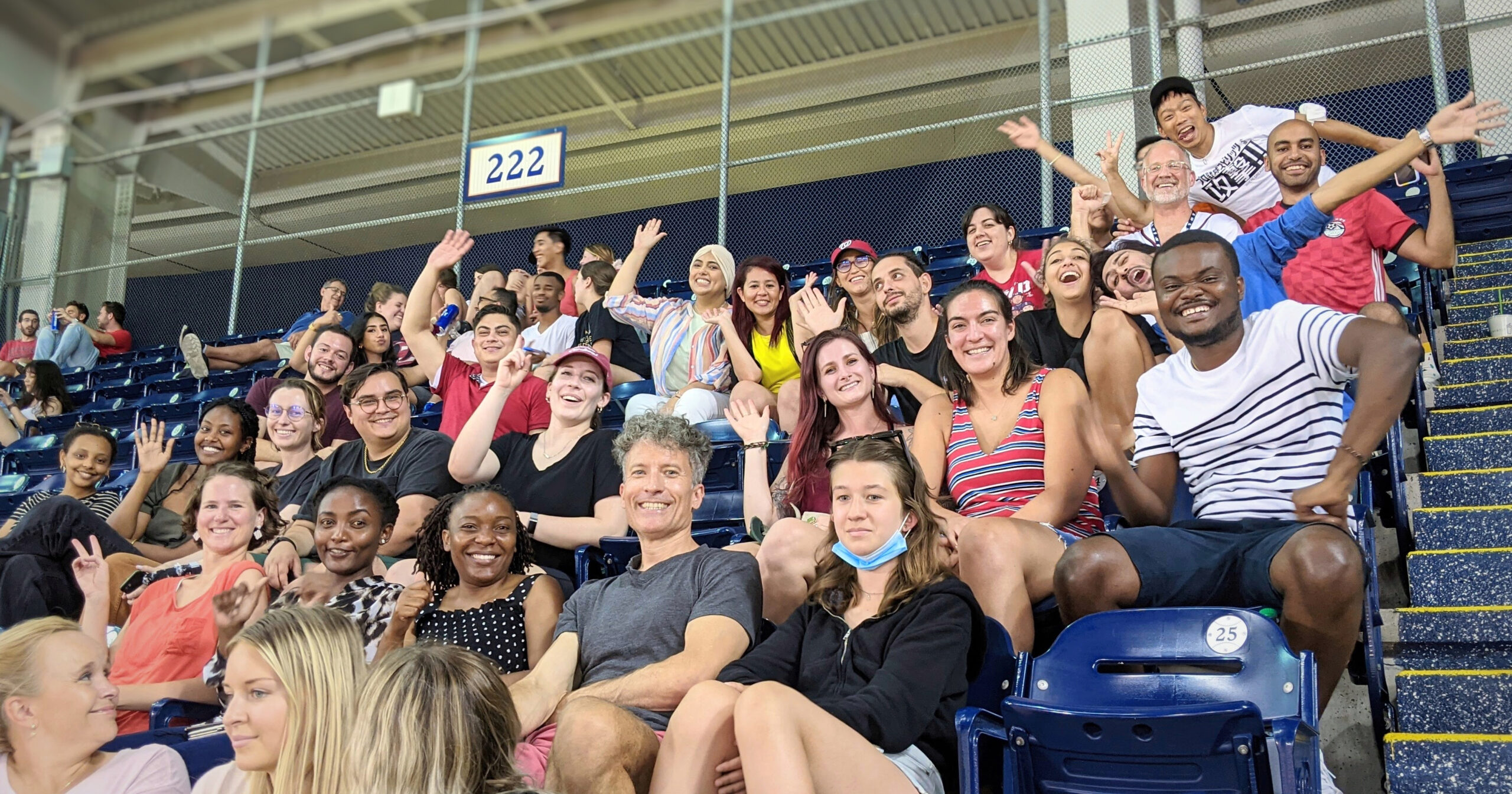
Awais and the Atlas Corps Community of Fellows, Alumni, and volunteers
How has your experience with your supervisors impacted your perspective?
I get to have not one, but two supervisors. Both of whom are exceptionally supportive in helping me deliver my commitments and have always been there whenever I have needed them. In every check-in, I receive the most thought-provoking questions, exceptional wisdom, and insights regarding my approach to work, and tremendous help in navigating my personal and professional goals. Not only do they provide me with the free space to do what I need to do, but they also support me in making the most out of that space by putting their faith in me and empowering me to go on and deliver. Because of this, I have shared with many friends and contacts in my close circle how I feel immensely grateful to have supervisors who are truly invested in my growth and well-being, which is probably one of my overall favorite aspects of this Fellowship.
How will you build upon the skills and knowledge gained during your Fellowship once you return to your home country?
For now, I am completely absorbed by the scale and scope of my work and everything it comes with. I am growing in not just my professional and tangible skills but also in my approach and mindset to work and as a person. Beyond this Fellowship, my approach to any sort of work will be more deliberate and data-driven. I now better understand the need for coordination among people and teams in order to better deliver on the big-picture objectives. In my later commitments, I also plan to continue exploring the new skills that I have started to develop. Lastly, one of my personal goals has been to start working on a small passion-project on my own and I plan to start that alongside a routine professional commitment after this Fellowship.
Fellow: Anil (Class 40, Nepal)
At Atlas Corps, we have a tradition of stating our “Five Facts” when introducing ourselves to new people. What are your five facts?
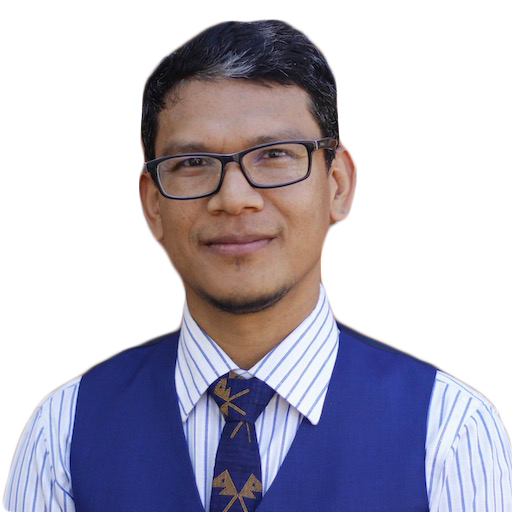 |
Name: Anil Chaudhary
Hometown: Kathmandu, Nepal Role at Organization: Quality, Data and Learning Research and Analysis Fellow Social Issue/Interest Area: Indigenous communities, Poverty and inequality, Humanitarian response Fun fact: I enjoy traveling and photography. |
What is your role at your Host Organization?
As the QDL Research & Analysis Fellow, I facilitated the discussions for the research design by coordinating with other departments and team members while writing research concepts for the International Services Strategy 2023 of the American Red Cross. Furthermore, I led the process of writing the Fiscal Year 21 Strategy Report by coordinating with several business leads and senior leadership teams. I have also provided support for the undertaking of other evaluations/studies in American Red Cross’ supported countries. As needed, I have also developed a database of Uplift learning sessions.
How is your experience with your Host Organization impacting your perspective?
In my home country, Nepal, and while briefly working in Tanzania, I have always been a part of the implementing agency where I have worked closely with the communities, and therefore had less experiences of working directly for the funding agency. In the past, I have also designed several evaluations and studies at the project or program level. However, being affiliated with the American Red Cross, I can now say that I have gained the knowledge and skills for designing institutional metrics, measurement frameworks with KPIs, and strategies to measure institutional performance. I also have a better understanding of what funders look for when evaluating programs and how studies can both foster organizational imperatives and provide opportunities for innovation.

Awais, Anil, Fellows and team members at a picnic
How has your experience with your supervisor impacted your perspective?
I admire my supervisors for having faith in me and for giving me independence to lead the initiatives. The constant guidance, motivation, and encouragement that I have received from my supervisors, Bernard and Yejin, in each one-on-one check-ins and regular meetings has helped me in navigating the work, as well as boosted my morale. From my supervisors, I have learned to a great extent that I am a better collaborator and I have a long way to go.
How will you build upon the skills and knowledge gained during your Fellowship once you return to your home country?
For me, the opportunity to be affiliated with one of the largest humanitarian organizations is something to be proud of. Having a global network and the experience of working in Washington, D.C. with an amazing team in the field that I am deeply connected to will be of great help to me and demonstrates added value. After this Fellowship, I will be pursuing my career in the field of disaster response and nexus of M&E and Research in my home country and elsewhere.
More about Atlas Corps
Atlas Corps partners with mission-driven organizations (nonprofit, private, and government) to facilitate a professional exchange program for the world’s best emerging social change leaders to live and serve in the United States for a 12-month Fellowship. The Atlas Corps network currently includes more than 1,100 professionals from 110 countries who have served at 300 organizations.
Interested in becoming a Host Organization for an Atlas Corps Fellow? Fill out Host Interest Form.
Photos from The American Red Cross’ archive


